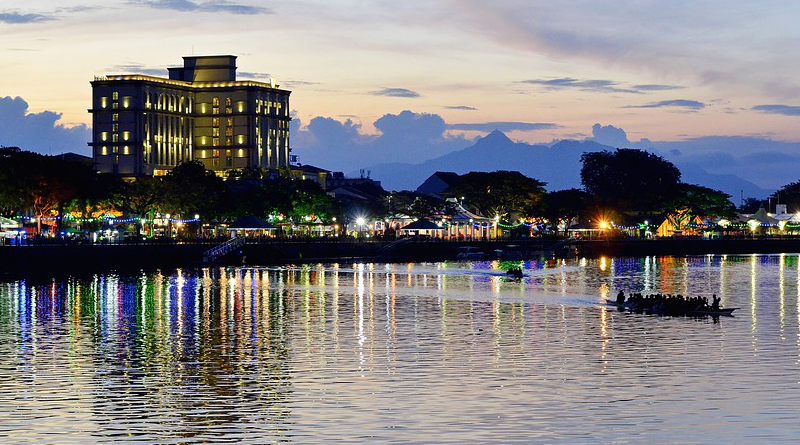Sarawak State Election: The GPS Landslide Is More Than Just An Election Victory – Analysis
Sarawak now much more powerful within the Malaysian federation
With the Covid-19 restrictions there was originally some uncertainty about whether there would actually be any state election this year. However, with the parliament formally dissolved on 3rd November, the electoral process commenced, culminating with voting on 18th December.
The election was never going to be any threat to the Gabungan Parti Sarawak (GPS) government, which held 67 of the 72 seats in the house, expanded to 82 for the 2021 election. Rather the election was to be more a referendum about the popularity of Abang Johari Openg, who had taken over the leadership after the death of the popular Adenan Satem.
There were some uncertainties whether infighting between GPS component parties, Parti Pesaka Bersatu (PBB), Sarawak United People’s Party (SUPP), and Parti Rakyat Sarawak (PRS) would affect support. In addition, GPS was rebranded and went into the election with the message “Sarawak first”. This move saw GPS completely disassociate themselves with peninsula based Barisan Nasional coalition, which GPS was part of until 2018.
This paid off handsomely. PRS won all the eleven seats it contested. Parti Demokratik Progresif (PDP) won five seats, and SUPP won 13 out of the 18 seats it contested. PBB won all the 47 seats the party contested, well over the 42 mark which would allow PBB to govern in their own right. This maintains PBB’s prominent place in Sarawak politics that would appear very difficult to dislodge for generations to come.
The results also fulfilled a long-held ambition by PBB to rid the state of pollical influence from the peninsula. Mahathir Mohamed while prime minister had threatened to move Parti Pribumi Bersatu Malaysia (Bersatu) into Sarawak to contest the state election. However, both United Malays Nasional Organization (UMNO) and Bersatu agreed with GPS not to field candidates in the Sarawak state election.
Parti Islam Se-Malaysia (PAS), which has a political office in Kuching fielded a single candidate who lost. The Democratic Action Party (DAP) which won 7 seats in the 2016 state election, lost 5 seats to GPS, leaving them with just two representatives in parliament, while Anwar Ibrahim’s Parti Keadilan Rakyat (PKR) failed in all the 28 seats the party contested.
Anwar Ibrahim was seen campaigning around the state. However, many reported that PKR didn’t provide any vision for Sarawak. PKR had poorly mismanaged the Sarawak branch, which was left without any figure able to rally any passion for the party locally. Pakatan also failed to form any alliance with Parti Bersatu Sarawak (PBS), which split the vote in three cornered fights. PKR had lost its two representatives to the new opposition Parti Bersatu Sarawak (PBS), which managed to win 4 seats in its debut election, being disappointing to the leader Wong Soon Koh, who was able to muster massive grassroots resources into the campaign.
The result for GPS was known within 90 minutes after the closure of voting. GPS has established itself as a key kingmaker in federal politics, if a similar result is obtained in the next federal election, which is most likely to be in 2023. GPS should be able to expand from the current 18 out of 31 available seats in Sarawak, forming a united and influential block in the next federal parliament.
This has great implications for Pakatan Harapan’s road to Putra Jaya. Relations between Pakatan and GPS are not good, and its most unlikely now that much support will come from Sarawak. UMNO is the winner in Putra Jaya, as staying completely out of Sarawak politics is likely to provide them with a powerful support block. UMNO and it partners next federal election with need to muster around 85 seats to form a government.
The low voter turnout, just under 60 percent clearly favoured GPS. Many Sarawakians working in the peninsula didn’t return home, nor did those working in urban areas bother to return to their kampongs and long houses. The campaign was very much based on patronage and personality, where the single-issue party Bumi Kenyalang (PBK) advocating secession from Malaysia, failed to garner enough votes for most candidates to keep their deposits.
This doesn’t mean there is no support for an independent Sarawak. GPS read the issue well, promising ‘Sarawak first’. The vote passing the MA63 legislation to change the federal constitution back to defining Sabah and Sarawak as territories and equal partners to Malaya is more than symbolic to the GPS.
GPS and in particular PBB has long wanted maximum autonomy from Putra Jaya. Expect to see Sarawak want more freedom in determining education issues, oil and gas rights, more funding for infrastructure development, and maybe even more say in policing.
Sarawak is now a country within a country. This has always been the PBB ambition, as the party elite believe they can’t go alone. They now have the full respect of Putra Jaya, which needs Sarawak more than Sarawak needs Putra Jaya.
This doesn’t mean that GPS doesn’t have much more work to do. Infrastructure development is the poorest in Malaysia. Many are also weary of an old guard of elite politicians from elite families, who are sometimes seen as condescending. The risk for Sarawak with only a nominal opposition is that the leadership may become complacent. GPS must groom a new generation of leaders to replace the present. This recent lection gives them the time to do that.
This Sarawak election has cemented the destiny of politics within Malaysia. Sarawak is now politically independent, while GPS will most certainly act as a king maker to keep UMNO in power after next election.

